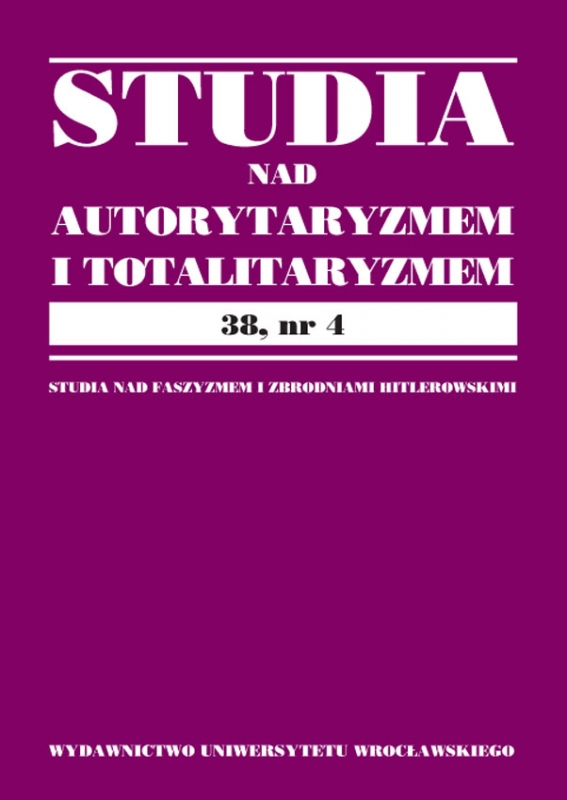

Artykuły

TOTALITARIANISM AND ITS DERIVATIONS IN SOCIAL SCIENCES AND IN THE LANGUAGE OF THE LAW AND IN THE JURISTIC LANGUAGE
The question how to study the historical phenomenon of totalitarianism is one of the most important questions raised, and examined, by Professor Maria Zmierczak, who has noted a danger of instrumentalisation of the concept, in particular in the post-communist countries. The article concerns such danger in making and applying the Polish law, as totalitarianism and its derivations have been in use in the juristic language since the beginning of the 1990s and put into legislative texts, since the 1997 Constitution of the Republic of Poland. Article 13 of the Constitution declares that “Shall be prohibited political parties and other organisations whose programmes are based upon totalitarian methods and the modes of activity of nazism, fascism and communism”. That formula was, on the one hand, an effect and condemnation of the difficult experience of the past, in particular of the period of the “People’s Poland”, and, on the other hand, it opened the room for official, legal qualification of the recent past, in the situation of a dispute among specialists in social sciences over communism in Poland, in particular whether it ended in 1956 or lasted until 1989/1990. In the resolution of 2 April 2009, the European Parliament warned against imposing of a given political interpretation of history by parliaments. Nevertheless, in Poland such imposing, seeming to exceed the natural need to impose sanctions on those who infringed citizen’s rights in the previous time, has taken place, and it substantially grows in the present time. On the other hand, the concept of totalitarianism and its derivations seems to be less and less in use in the juristic language, i.e. that of lawyers including judges, orienting rather on a prudent language of science than that more and more radical of the political majority, and, therefore, of the law.